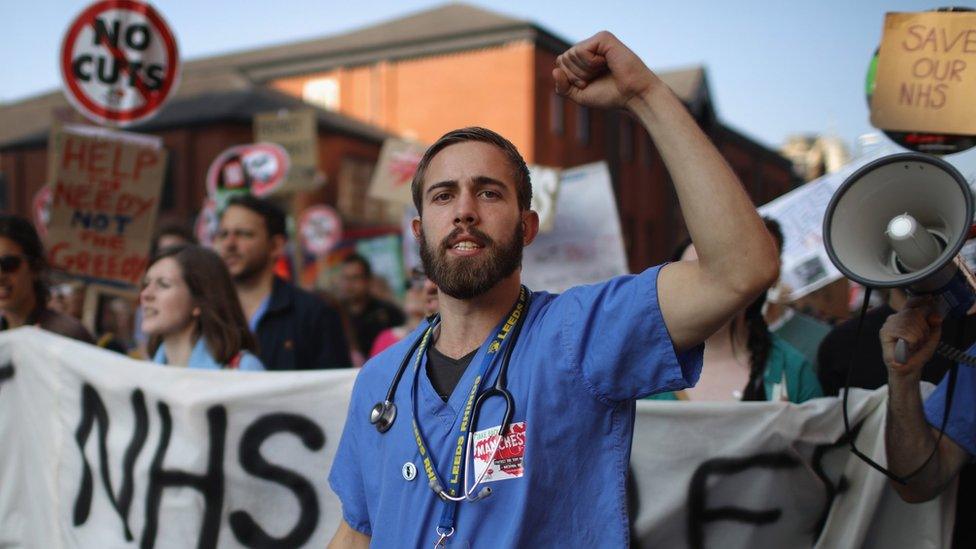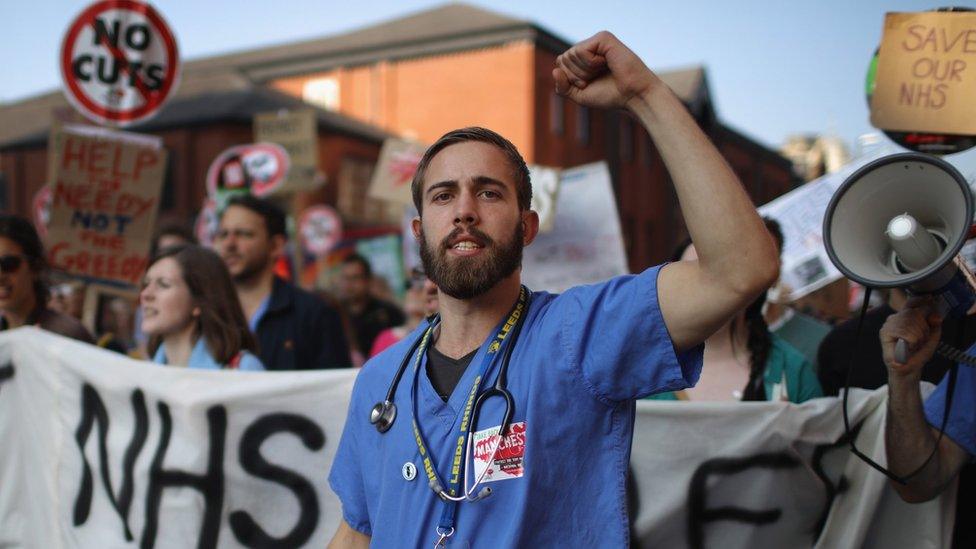A&E strike 'risks harming patients'
- Published

Junior doctors will put patients "in harm's way" by withdrawing emergency care during strikes next month, health minister Ben Gummer has said.
It will be the first time doctors have ever removed cover from areas such as A&E and intensive care.
The British Medical Association said it had been left with "no choice" in its fight against the imposition of a new contract in England.
But Mr Gummer said the government could not be "held hostage".
Previous junior doctors strikes have affected only routine care.
But the all-out stoppages - which will take place from 08:00 to 17:00 on 26 and 27 April - will include emergency care.
It will mean consultants being drafted in from other hospital departments to staff emergency care, potentially causing huge disruption to routine services.
Mr Gummer told the House of Commons that "we will do everything in our power to ensure patients are protected," but added "if you withdraw the number of doctors that will be withdrawn by the BMA in this action then there is an increased risk of patient harm".
Labour's Heidi Alexander said this was a "worrying time for patients" and urged ministers to listen to patients and "think again" to avert strike action.
She told the Commons: "The secretary of state may think the matter is closed, I say that is arrogant and dangerous in the extreme.
"This is an awful game of brinkmanship and the government must press the pause button before it is too late."

How will this affect patients?

A full walk-out is unchartered territory for hospitals - and of course raises the risk for patients.
Consultants will have to be drafted in from all across the hospital to staff everything from intensive care and emergency surgery to, of course, A&E. That will undoubtedly mean a mass postponement of routine work.
But perhaps more important is what it means for life-threatening care - the heart attack patients and car accident victims. Greater consultant presence in A&E may mean better, quicker care, as they will be more available to make decisions about what patients need.
In emergency surgery, consultants are helped by junior colleagues. Having more consultants in a theatre should resolve that. But where it becomes less clear is what sort of response patients on wards get if they have a medical emergency.
Normally, junior doctors would be among the first medics called. Without them there, and with consultants and other staff deployed elsewhere, patients could be vulnerable.

Yesterday, BMA junior doctors' leader Dr Johann Malawana said: "No junior doctor wants to take this action, but the government has left us with no choice.
"In refusing to lift imposition and listen to junior doctors' outstanding concerns, the government will bear direct responsibility for the first full walkout of doctors in this country.
"The government is refusing to get back around the table and is ploughing ahead with plans to impose a contract junior doctors have no confidence in and have roundly rejected.
"We want to end this dispute through talks, but the government is making this impossible."
- Published6 April 2016
